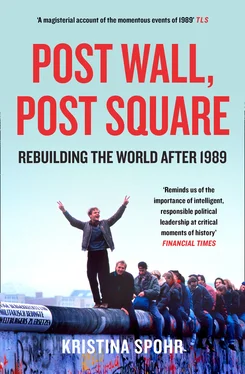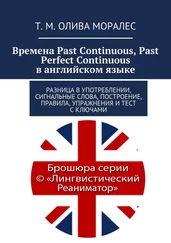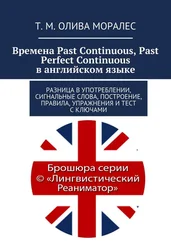Scowcroft served as the focus for a second group of advisers who were much more sceptical of Gorbachev and his plans, fearing that they might be intended to revitalise Soviet power. Moscow, Scowcroft warned, might ‘smother the West with kindness’ and thus weaken NATO’s resolve and cohesion. For this reason he firmly opposed an early summit meeting between Bush and Gorbachev in 1989, lest it would simply feed into Soviet propaganda. As he reflected later: unless there were substantive accomplishments, such as in arms control, the Soviets would be able to capitalise on the one outcome left – the good feelings generated by the meeting. They would use the resulting euphoria to undermine Western resolve, and a sense of complacency would encourage some to believe the United States could relax its vigilance. The Soviets in general and Gorbachev in particular were masters at creating these enervatingly cosy atmospheres. Gorbachev’s UN speech had established, largely with rhetorical flourish, a mood of heady optimism. He could exploit an early meeting with a new president as evidence to declare the Cold War over without providing substantive actions from a ‘new’ Soviet Union.[43]
Scowcroft and Bush were almost the same age: they had both been airmen but Bush’s service was confined to the Pacific War whereas Scowcroft was a career officer in the post-war US Air Force from 1947 until he joined the Nixon White House in 1972, before becoming Ford’s national security adviser (1975–7). It was during the Ford years that he became closely acquainted with Bush, who was US envoy to China and then director of the CIA. They shared the same world view, one defined by the Second World War, the Cold War and Vietnam. Both believed in US leadership in the world, the centrality of the transatlantic alliance, and the necessity of using force decisively if and when it had to be employed. And both believed in the efficacy of personal diplomacy and the paramount importance of good intelligence. Bush trusted Scowcroft completely. He called him ‘the closest friend in all things’ – on the golf course as much as in the Oval Office.[44] Scowcroft saw his role as the president’s personal adviser and also an honest broker, being free – unlike Baker – from having to represent the interests of a particular government department. And as national security adviser, he was also the nodal point of Bush’s security and foreign policy. Now in the post for a second time, Scowcroft developed his own ‘system’, a highly effective decision-making process. Its hallmarks were regular consultation among the NSC staff, and ruthless discouragement of leaks, with everything channelled through Scowcroft to the president. But, unlike the NSC under Henry Kissinger or Zbigniew Brzezinski in the 1970s, the atmosphere was essentially collegial rather than conspiratorial. And Scowcroft and Baker, despite their inevitable frictions, managed to work productively together.[45]
Taken as a whole, therefore, the Bush administration possessed great expertise in foreign policy, and the president himself cared deeply about these issues. He enjoyed reading briefing papers and memos and, unlike his three immediate predecessors – Ford, Carter and Reagan – brought to the job extensive experience in international affairs. In addition to the posts he held in the 1970s, he had served eight years as vice president, during which he got to know many foreign officials and most heads of government. In terms of personality, Bush was unassuming and cautious but also highly ambitious and self-assured. Though he may not have been a strategic visionary, his statecraft was guided by a clear set of basic convictions and goals. A stable world order needed leadership and, in spite of much pessimism in the 1980s, Bush had no doubt that the United States alone could provide it; he did not see America as being in ‘decline’.
To be sure, in some American circles the narrative of ‘decline’ combined with gloomy talk about a dawning ‘Pacific century’ (with Japan in the vanguard due to its prodigious economic growth) and a potential ‘Fortress Europe’ (an ever more closely economically and politically integrated and protectionist European Community). But the Bush White House focused on what it perceived as the rising popularity and spread of America’s liberal values across the world and on pushing for the creation of a new, truly global trading system (led by the United States) – one that would replace the dying 1947 GATT agreement and include the Soviet Union, China and the Third World.
Bush was confident that the US was actually entering a new era of ascendancy; the twenty-first century would be America’s. The United States, Bush declared expansively in November 1988, just before his election, had ‘set in motion the major changes under way in the world today – the growth of democracy, the spread of free enterprise, the creation of a world market in goods and ideas. For the foreseeable future, no other nation, or group of nations, will step forward to assume leadership.’[46]
These themes of global change and American opportunity were developed more fully in his inaugural address on 20 January, looking out from the West Front of the Capitol across the Mall to the Lincoln Memorial. After the customary invocations of the deity and American history, Bush positioned himself on the cusp of a new era, as yet ill-defined. ‘There are times when the future seems thick as a fog; you sit and wait, hoping the mists will lift and reveal the right path. But this is a time when the future seems a door you can walk right through into a room called tomorrow.’ And Bush was ready to do so. ‘We live in a peaceful, prosperous time, but we can make it better. For a new breeze is blowing, and a world refreshed by freedom seems reborn. For in man’s heart, if not in fact, the day of the dictator is over.’ The new president made no direct reference to the amazing transformations under way in the Soviet bloc and in communist China, but no one could have been in any doubt of what he meant. ‘The totalitarian era is passing, its old ideas blown away like leaves from an ancient, lifeless tree … Great nations of the world are moving toward democracy through the door to freedom.’ And America was the gatekeeper. ‘We know what works: freedom works. We know what’s right: freedom is right.’ The president set out the country’s mission: ‘America is never wholly herself unless she is engaged in high moral principle. We as a people have such a purpose today. It is to make kinder the face of the Nation and gentler the face of the world. My friends, we have work to do.’[47] This was America’s moment and he wanted to seize it.
But where should the work begin? One might have expected that Bush would have opened the door towards Moscow: after Gorbachev’s watershed speech at the UN and with the political transformation under way in Poland and Hungary, much of the world was fixated on the changes in the Soviet Union and the ferment in Eastern Europe. Yet, guided by the scepticism of Scowcroft and also keen to break from Reagan’s cosy relations with Gorbachev, Bush’s presidency began with a deliberate ‘pause’ in superpower diplomacy.[48] With few active agenda items left by the Reagan White House – START I being the notable exception – Bush decided to order a set of studies ‘re-examining existing policy and goals by region, with reviews of arms control as well’. Working out how to deal with Moscow was ‘obviously our first priority’, Scowcroft would later recall, but the reports would take a while to produce. Indeed, the NSC review on the Soviet Union (NSR 3) did not land on the president’s desk until 14 March, the reviews on Eastern (NSR 4) and Western Europe (NSR 5, focused on closer union by 1992) two weeks after that.[49]
Meanwhile, Bush had not only opened the China door but strode right through it. On 25–6 February he met with the Communist Party in Beijing. It was the first time in American history that a new US president had travelled to Asia before going to Europe.[50]
Читать дальше












